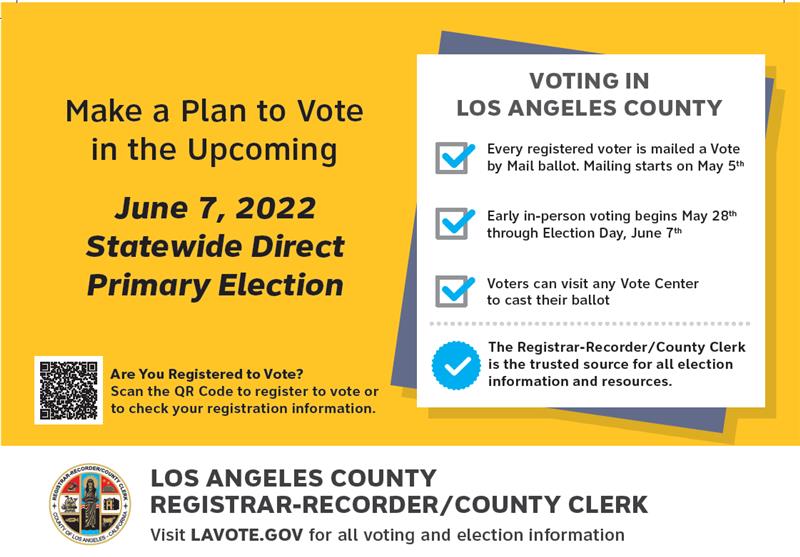(Editor’s Note: This CTN editor has four emails. One is personal, one is with Circling the News, but two are from prior newspaper jobs from about 2003 to 2017. The emails are not used, but kept for contacts. Prior to the June 7 primary, this editor received Councilman Mike Bonin’s candidates suggestions on all four emails. Although it was stated at the bottom that he and not his office had sent the email, how did he get the emails he was using? From his office? Is that legal? I asked a writer to research it.)

BY REECE PASCOE
I like many residents was a little overwhelmed with this past primary election. The ballot was eight pages long with more than 100 candidates – most of whom I had never heard of.
It gets tough researching every candidate and trying to vote for the best candidate, especially when many of them don’t have a website or way to see who they are or what they stand for.
District 11 Councilmember Mike Bonin 11 took care of that. The CTN editor received an unsolicited email from Mr Bonin, not once but four times.
Mr. Bonin’s email was in high praise of Erin Darling stating all his accomplishments especially focusing on the eviction stay of renters during Covid. Bonin was also favorable to Karen Bass.
Did Bonin break the law by sending out emails to a list that was most likely compiled from his Council Office? Is that legal?
One might remember a couple of years back President Donald Trump came under fire because his administration violated the Hatch act. The Hatch act was sponsored by New Mexico Senator Carl A. Hatch and signed into law by FDR in 1939.
The Hatch Act was implemented after the Senator, learned that New Deal-era government programs were using federal funds overtly to support Democratic Party candidates in the 1938 election.
“The Hatch Act generally prohibits Federal employees from engaging in political activities while on duty, in a government room or building . . . Under the Hatch Act, ‘Political activity’ is defined as any activity directed toward the success or failure of a political party, candidate for partisan political office, or partisan political group.”
The Hatch Act states a government employee “May not use official authority to interfere with an election or while engaged in political activity” and “May not use email or social media to engage in political activity.”
President Barak Obama signed the Hatch Act Modernization Act of 2012, which modified penalties under the Hatch Act and clarified the applicability to the District of Columbia of provisions that cover state and local governments.
Any violations under the Hatch Act include removal, debarment from federal employment for a period not exceeding 5 years, and a penalty not to exceed $1,000.
It seems that Bonin may have violated the Hatch Act at least in two ways. It appears he used taxpayer money to promote various candidates using his private email and that he mass distributed to the public.
One can fill out an affidavit and send it off to the Office of the Special Consul to see if they would look into the L.A. City Councilmember. Then they will review it – and then what? The Hatch Act has almost no enforcement/penalty teeth, especially when that person in question in leaving office.
The reason that people should care is Bonin is using his email list, which is compiled from his Councilmember email list to promote “name recognition.”
Even after a voter has done all the research before voting, if they can’t find information, most likely they will vote for a name they may have heard before.
One example of name recognition is Rick Caruso. Everyone in Pacific Palisades knows his name, mostly from his Caruso Palisades Village Project.
Did everyone in the City who voted for him like his polices above other candidates or was it from name recognition and other advertising that helped him?

Councilman Mike Bonin (left) and developer Rick Caruso at Palisades Village ground project’s groundbreaking.
Photo: Bart Bartholomew
L.A. City Ethics was contacted and asked if it was legal for Councilman Mike Bonin to sell, rent or borrow his email list to Mike Bonin, an individual. If it is legal, does he have to declare the sale?
According to the ethics website click here, a person who makes or distributes a campaign, officeholder, or legal defense communication to 200 or more persons shall file a copy of the communication with the Ethics Commission. Did Bonin do that?
The LA ethics site notes that “An elected City officer may not use a social media account or Web site for campaign purposes if the account or site is paid for, sponsored by, or hosted by the City.
“If an elected City officer communicates about campaign activity or City business using a social media account or Web site that is not City sponsored, the home page for the account or site shall include the following statement: ‘This [account or site] is not paid for, sponsored by, or hosted by the City.” This statement shall be prominent, in a typeface that is easily legible to an average reader and in a color that contrasts with the background on which it appears.’”
Mr. Bonin’s message urging people to vote for his choices did not include that statement.
If L.A. City Ethics responds, this story will be updated.

Mike Bonin is a miserable psychopath. We must work to make sure he does not hold a government job again.